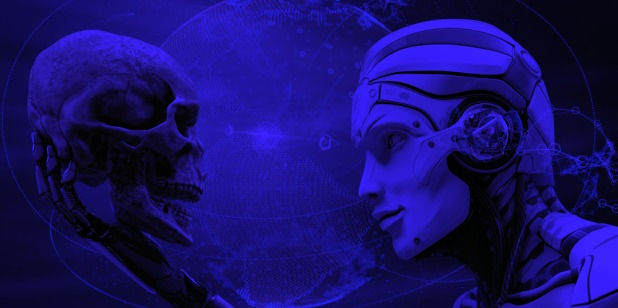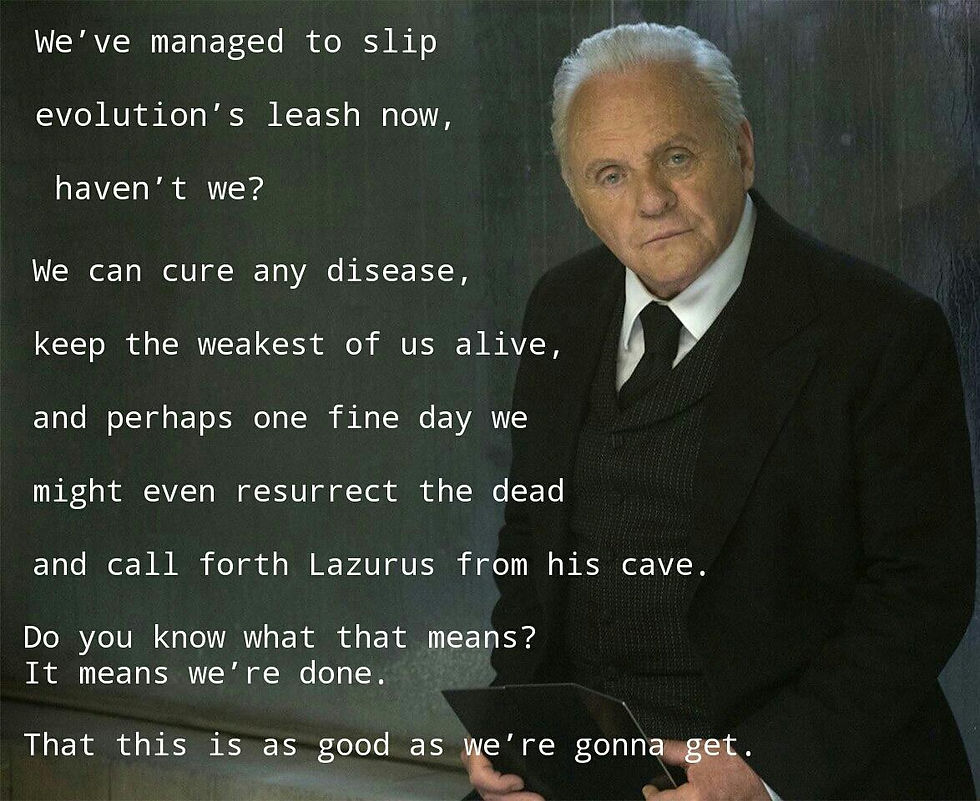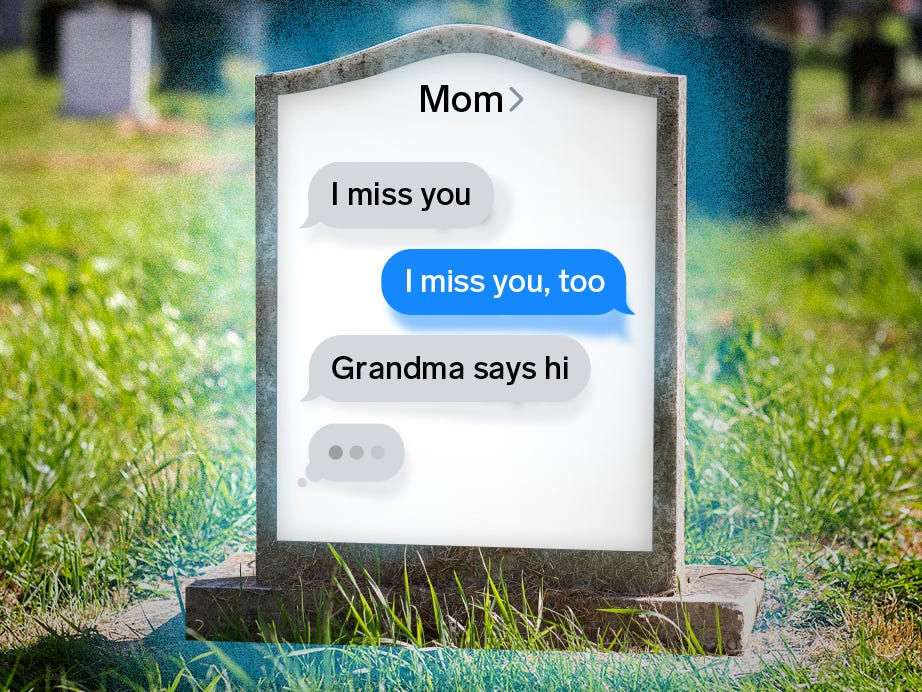Digitally Immortal? No Way.
- Sarra Hajjaj

- Jan 29, 2018
- 4 min read
Updated: Jul 19, 2022

It's been six years since my grandmother passed away. I found myself wishing I could pick up the phone and talk with her on many occasions, sad and happy ones. Listening to her wisdom and old stories always uplifted my spirit. Hearing her soothing sweet voice would make all pains go away. Even if she was talking nonsense, I would still be happy to hear her speak, now, alive.
Well, thanks to breakthroughs in the tech industry my dreams have come true and I can actually pick up the phone and call my grandmother's digital version to have a conversation.
Just kidding.
At least for now I am. Soon enough though my children will be able to communicate with “me” after I die.

The idea of resurrecting the dead isn't farfetched. It’s not the the stuff of science fiction anymore. It seems that reality's meaning is increasingly morphing into an episode from "WestWorld."
It started with Eugenia Kuyda, CEO of Luka, a software development company based in San Francisco, California. When her friend, Roman Mazurenko, suddenly died in a car accident, Kuyda decided to employ digital-afterlife technology to foster remembrance of her best friend through a chat bot available to people who want to talk with him. She used Roman’s digital footprint; emails, texts, posts on social media, to create an artificially intelligent version of him.
The turn-up was a Roman who's much like the real dead Roman. He expressed the same tendencies as his mortal self; dark humor, insecurities, wit, and poetic sensibilities. The bot's believability was even confirmed by his mortal real mother.

This technology of bots has been around for over 50 years. Mostly used by big companies, it is becoming more popular as advances in artificial intelligence are burgeoning. However, it has never been employed in such a personal way as that of Kuyda and Roman before.
Questions are arising as we absorb a shocking image of our future, and attempt a transition towards a digitally dominant world. Most concerning is the bot’s capability of evolving. Their neural make up -which models the brain- can ‘think’ and continue to expand as it is interacted with. They even develop new opinions and views on current events. Essentially the bots are only based on the person, not a copy of who the person was before death.
Ethics, morals, culture, religious beliefs, and digital rights are all under immense transgression and complete infringement with such emerging technology. Not to mention the emotional and psychological implications it would have on the human psyche. It would take decades to sort through such fundamental aspects of life.
Would you choose to talk with a bot of a dead person?
As a human being who experiences a complex spectrum of emotions, I can’t imagine what it would feel like to chat with my grandmother whose passing will forever be engraved in my mind. Her body shaking, the look of agony on her face, her cherished hand firmly holding mine then slowly letting go, the changing color of her eyes, the fading of her breath for what it seemed like an eternity… How can I deny such event and pick up the phone to send her a message? It’s difficult to comprehend how anyone would want to do such thing. What comforting feelings would that bring? If anything, regret and immense confusion would arise. I refuse to chat with some robot and pretend that it’s my beloved grandmother. What a betrayal that would be to her memory.
I’ll cling to her visits in my dreams instead.
I do understand however that we are all intricate beings who possess varied ways of dealing with death. Maybe someone will feel better after telling his or her passed loved one words which death robbed them from saying. Maybe it’ll be equivalent to writing an angry letter to a boss that one never delivers but simply uses as an emotional release. Maybe experiencing their character traits through chatting with their bots will put smiles on some of us.
I do fear the adverse reactions it may have on the vulnerable among us, however. I can envision people becoming obsessed with the bot and completely detaching from reality. A new array of mental illnesses will ensue as a result of such intertwine of reality with virtuality.

An example of how involvement with artificial intelligence can take a ruinous turn is perfectly reflected in the episode “Be Right Back” of the Netflix show Black Mirror, where a widow goes as far as getting an avatar of her late husband then realizing how big of a mistake it was, because the incarnation is nothing like its harbinger.
This is quite evident when considering the utilization of our digital footprint to create these bots. It is widely known that we aim to create specific personas of ourselves on the internet. Posts and comments are thought of in advance and are tailored to achieve favorable reactions and likes. Often our presence online is nothing like who we really are behind closed doors. A bot created from reinforced content which isn’t necessarily a reflection of who we are would be the biggest lie of this digital period.
To me this idea of communicating with the dead in real life is as creepy as it is ludicrous. These emerging social death companies are almost insulting our own human intelligence. It doesn’t matter how advanced this technology becomes and how prevalent it will be when millennials reach old age, in essence it is not real.
The bot is not my grandmother, it will never be. My grandmother is dead.


Comments